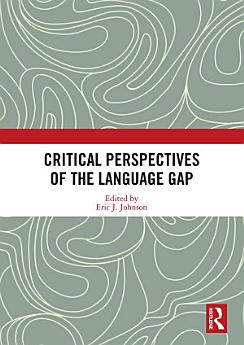Critical Perspectives of the Language Gap
About this ebook
This book was originally published as a special issue of the International Multilingual Research Journal.
About the author
Eric J. Johnson is currently Associate Professor of Bilingual Education at Washington State University Tri-Cities, Richland, USA. His research focus involves ethnographic approaches to language minority programs and policies in public schools. His publications span a variety of topics involving language policy and planning, immigrant communities, parent and community engagement, bilingual education, and Hispanic-serving institutions. Dr. Johnson teaches undergraduate and graduate courses related to teacher preparation, including the theoretical foundations of bilingual and English as a Second Language (ESL) education, teaching methods for bilingual/ESL education, sociolinguistics, and diversity in education.






